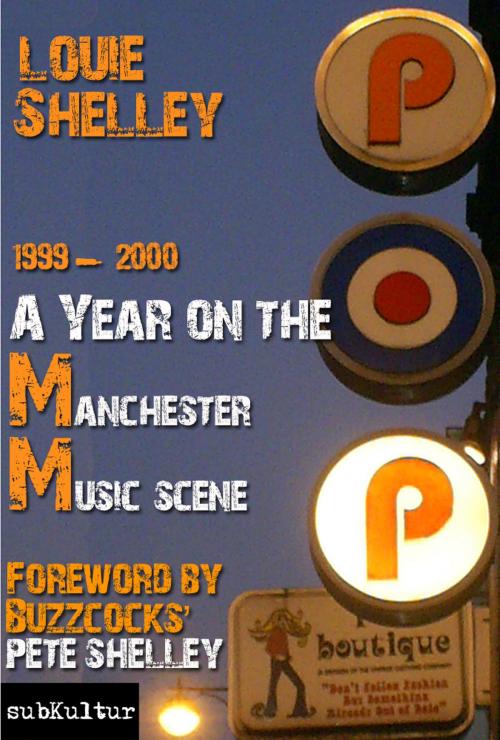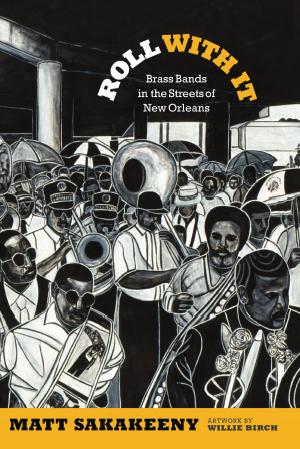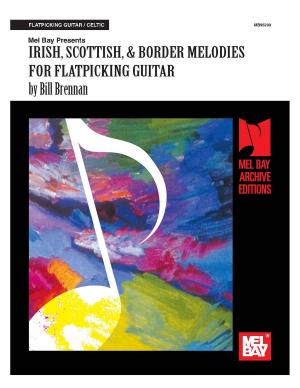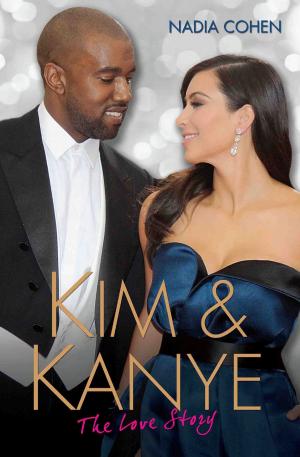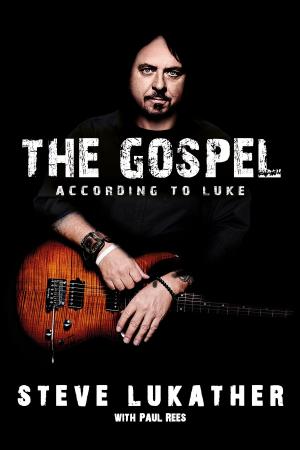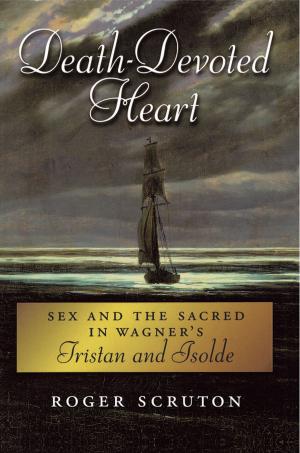A Year on the Manchester Music Scene
Nonfiction, Entertainment, Music, Pop & Rock, Dance, Music Styles| Author: | Louie Shelley | ISBN: | 9781310166655 |
| Publisher: | subKultur | Publication: | January 8, 2014 |
| Imprint: | Smashwords Edition | Language: | English |
| Author: | Louie Shelley |
| ISBN: | 9781310166655 |
| Publisher: | subKultur |
| Publication: | January 8, 2014 |
| Imprint: | Smashwords Edition |
| Language: | English |
A Year on the Manchester Music Scene is the collected writings of a freelance journalist who was commentating on the city's music and cultural scene up to the year 2000. Some of these articles were written for Manchester titles – yet some of them were written for national papers who seemed to welcome the opportunity to have a freelance contributor covering the north west arts scene. I feel I must have approached the nationals at quite a fortuitous time – when the city and its scene were beginning to acquire countrywide recognition, but before any other northwestern freelancers had realised there was a bandwagon to be jumped on.
Culturally the city was thriving. It was still in the process of being rebuilt, physically and spiritually, after the IRA bombing in 1996; however, it had not yet fully succumbed to the dubious 'improvements' that have been inflicted on the city since then: the rasing or reconstructing of many of the metropolis's Victorian landmarks and the proliferation of chrome and glass on the municipality's radial routes which are billed as 'City Edge Living'.
Tony Wilson was still alive and doing his damnedest to get the city he loved on the map, and 'Madchester' had happened only ten years earlier; yet there was still a freshness and certain unself-consciousness about the place which only added to the city's charm and which, subsequently, may have been lost. Manchester now has achieved the credit it deserves as a cultural capital. Visitors come from all over the world to visit the Northern Quarter (with the highest concentration of record shops in Europe), the Salford Lads' Club and other musical landmarks. Indeed, Manchester is now an international city – a bit like Barcelona, but with more red brick and without the sun or sea. I am pleased for the city – it's no longer the grim, grey urban wreck which it was when I was growing up here in the 1970s – but at the same time I mourn the loss of some of the city's grittier character and history. I mourn the loss of the Corn Exchange, the old Hulme – including the old Factory or Russell Club, but which we called the PSV Club (I didn't know when I was dancing on that stage, off my head on Es, that I was getting on down on the same spot where my heroes Buzzcocks and their contemporaries had performed, a decade and a half earlier). I mourn the Man Alive, the 24 hour chippy (now a Manchester Tourist Information Centre and gift shop, selling 'I Heart Manchester' hoodies and mugs), the Arndale Bus Station, the old sunken Piccadilly gardens – and yes, even the Hacienda (most overrated club in history). I'm glad that the city is prospering, economically and culturally – and at the same time, I feel some nostalgia for when 'Manchester' was a place you lived in and not a brand. (I now live in London, and don't visit the city as often as I thought I would when I moved away.)
Of course, Manchester's not the only place that's changed. As they say, 'The past is a foreign country: they do things differently there.' We live in a world where things are disposable, commodified, commercialised and slick; where people shop for things they don't want then have to rent storage to accommodate them; where there is an internationally-branded coffee shop on every corner and where people endlessly consume. Manchester – with its Selfridges, MEN Arena and O2-branded Apollo – has fallen victim to these developments as much as anywhere else. The summer of 2000 was only twelve years ago but already it seems as though we have complications that we didn't have then.
Looking back at these writings, they form a snapshot of a particular place and time: a specific moment in regional cultural history which can never be repeated.
It's a great city, and it was a great year.
A Year on the Manchester Music Scene is the collected writings of a freelance journalist who was commentating on the city's music and cultural scene up to the year 2000. Some of these articles were written for Manchester titles – yet some of them were written for national papers who seemed to welcome the opportunity to have a freelance contributor covering the north west arts scene. I feel I must have approached the nationals at quite a fortuitous time – when the city and its scene were beginning to acquire countrywide recognition, but before any other northwestern freelancers had realised there was a bandwagon to be jumped on.
Culturally the city was thriving. It was still in the process of being rebuilt, physically and spiritually, after the IRA bombing in 1996; however, it had not yet fully succumbed to the dubious 'improvements' that have been inflicted on the city since then: the rasing or reconstructing of many of the metropolis's Victorian landmarks and the proliferation of chrome and glass on the municipality's radial routes which are billed as 'City Edge Living'.
Tony Wilson was still alive and doing his damnedest to get the city he loved on the map, and 'Madchester' had happened only ten years earlier; yet there was still a freshness and certain unself-consciousness about the place which only added to the city's charm and which, subsequently, may have been lost. Manchester now has achieved the credit it deserves as a cultural capital. Visitors come from all over the world to visit the Northern Quarter (with the highest concentration of record shops in Europe), the Salford Lads' Club and other musical landmarks. Indeed, Manchester is now an international city – a bit like Barcelona, but with more red brick and without the sun or sea. I am pleased for the city – it's no longer the grim, grey urban wreck which it was when I was growing up here in the 1970s – but at the same time I mourn the loss of some of the city's grittier character and history. I mourn the loss of the Corn Exchange, the old Hulme – including the old Factory or Russell Club, but which we called the PSV Club (I didn't know when I was dancing on that stage, off my head on Es, that I was getting on down on the same spot where my heroes Buzzcocks and their contemporaries had performed, a decade and a half earlier). I mourn the Man Alive, the 24 hour chippy (now a Manchester Tourist Information Centre and gift shop, selling 'I Heart Manchester' hoodies and mugs), the Arndale Bus Station, the old sunken Piccadilly gardens – and yes, even the Hacienda (most overrated club in history). I'm glad that the city is prospering, economically and culturally – and at the same time, I feel some nostalgia for when 'Manchester' was a place you lived in and not a brand. (I now live in London, and don't visit the city as often as I thought I would when I moved away.)
Of course, Manchester's not the only place that's changed. As they say, 'The past is a foreign country: they do things differently there.' We live in a world where things are disposable, commodified, commercialised and slick; where people shop for things they don't want then have to rent storage to accommodate them; where there is an internationally-branded coffee shop on every corner and where people endlessly consume. Manchester – with its Selfridges, MEN Arena and O2-branded Apollo – has fallen victim to these developments as much as anywhere else. The summer of 2000 was only twelve years ago but already it seems as though we have complications that we didn't have then.
Looking back at these writings, they form a snapshot of a particular place and time: a specific moment in regional cultural history which can never be repeated.
It's a great city, and it was a great year.
